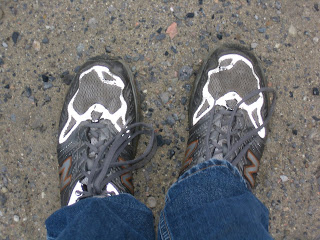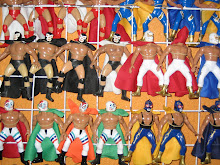 To answer these questions, I have to take you to two beaches: Mochima in Venezuela, and Llico in Chile. The first might be confused for a steamy version of paradise upon first glance. If you look at your feet, which are probably bare, you see fine white granules of sand, free of garbage, seaweed, and other types of detritus. Looking down further, a soft breeze tosses the crystalline water into gentle waves; a handful of ostentatious yachts rest not far from the hot sand. Mochima is a protected national park near my current residence in Cumaná, Venezuela. On occasions such as this, life feels good, and I cannot kvetch. I am lucky to have the company of my Venezuelan friends Eliana, Roamir, Pablo, and Rachel, another North American English teacher. Of course, we are not alone: other beach-going Venezuelans pack the shore too. Given the hot weather, everyone tends to minimize the amount of clothing worn. For better or worse, the women with bikinis have their speedo-sporting male counterparts as well. "To each his own," I think. The beach in Venezuela typically is no place for modesty.
To answer these questions, I have to take you to two beaches: Mochima in Venezuela, and Llico in Chile. The first might be confused for a steamy version of paradise upon first glance. If you look at your feet, which are probably bare, you see fine white granules of sand, free of garbage, seaweed, and other types of detritus. Looking down further, a soft breeze tosses the crystalline water into gentle waves; a handful of ostentatious yachts rest not far from the hot sand. Mochima is a protected national park near my current residence in Cumaná, Venezuela. On occasions such as this, life feels good, and I cannot kvetch. I am lucky to have the company of my Venezuelan friends Eliana, Roamir, Pablo, and Rachel, another North American English teacher. Of course, we are not alone: other beach-going Venezuelans pack the shore too. Given the hot weather, everyone tends to minimize the amount of clothing worn. For better or worse, the women with bikinis have their speedo-sporting male counterparts as well. "To each his own," I think. The beach in Venezuela typically is no place for modesty. One can observe this effusive air by the anthropogenic sounds too. In addition to the soft breeze, the Latin beats of salsa, merengue, and reggaeton are as loud and inescapable at the beach as they are in the streets of downtown Cumaná. Moreover, my friends (mainly the male ones) constantly joke in a raucous manner without a concern for the volume of their voices. And why should anyone worry? There is no reason to hush one’s voice when children and adults alike scream as they play in the warm Caribbean water.
One can observe this effusive air by the anthropogenic sounds too. In addition to the soft breeze, the Latin beats of salsa, merengue, and reggaeton are as loud and inescapable at the beach as they are in the streets of downtown Cumaná. Moreover, my friends (mainly the male ones) constantly joke in a raucous manner without a concern for the volume of their voices. And why should anyone worry? There is no reason to hush one’s voice when children and adults alike scream as they play in the warm Caribbean water. The second beach has a very different feel as I look down at my feet, closed toed shoes still on, and see that the sand is darker and less fine. Though it is on the same continent of South America as Mochima, one sees, feels and hears stark differences in the fishermen’s cove of Llico in southern Chile where I stand with my two good friends Lucho and Cristian Díaz*. Upon looking at the expanse of beach, I see a mosaic composed of seaweed, broken shells, black speckled sand and wind-swept bluffs. Wind is the operative word in this land because it is strong and inescapable, complemented by the crash of the waves. The large trees brave the wind’s force, yet there is certainly no Caribbean palm tree in sight, nor do the locals slurp down piña coladas to wash down their empanadas. Regardless, plenty of Chilean families enjoy the beach’s rugged beauty, though it is not as packed as its aforementioned Venezuelan counterpart. Locals test their nerves in the frigid water of the Pacific Ocean, yet taking a dip is less tempting for me, especially as I think about the tropical waters of Mochima. I am more than content admiring the scenery.
The second beach has a very different feel as I look down at my feet, closed toed shoes still on, and see that the sand is darker and less fine. Though it is on the same continent of South America as Mochima, one sees, feels and hears stark differences in the fishermen’s cove of Llico in southern Chile where I stand with my two good friends Lucho and Cristian Díaz*. Upon looking at the expanse of beach, I see a mosaic composed of seaweed, broken shells, black speckled sand and wind-swept bluffs. Wind is the operative word in this land because it is strong and inescapable, complemented by the crash of the waves. The large trees brave the wind’s force, yet there is certainly no Caribbean palm tree in sight, nor do the locals slurp down piña coladas to wash down their empanadas. Regardless, plenty of Chilean families enjoy the beach’s rugged beauty, though it is not as packed as its aforementioned Venezuelan counterpart. Locals test their nerves in the frigid water of the Pacific Ocean, yet taking a dip is less tempting for me, especially as I think about the tropical waters of Mochima. I am more than content admiring the scenery.And certain acoustic qualities of the beach in Llico are apparent in every corner of the country. True to its Latin American identity, the streets in the Chile have the ongoing serenade of reggaeton and other Latin American pop music. However, the music is rarely heard at ear-drum
 bursting volumes that assault all who trot the streets of Venezuela. I have also noticed that people tend to speak at a slightly hushed volume in Chile, and the jokes told by Chileans come off as more tame and lack the double meaning that is characteristic of the Venezuelan sense of humor. Regardless, I have a wonderful time with Lucho and Cristian, who –like my Venezuelan friends Eliana, Roamir and Pablo – provide great company, local knowledge and their own well-rounded sense of humor. Based on such observations, Chile begins to feel as sincere as much as it is conservative, measured, and subtle in its style.
bursting volumes that assault all who trot the streets of Venezuela. I have also noticed that people tend to speak at a slightly hushed volume in Chile, and the jokes told by Chileans come off as more tame and lack the double meaning that is characteristic of the Venezuelan sense of humor. Regardless, I have a wonderful time with Lucho and Cristian, who –like my Venezuelan friends Eliana, Roamir and Pablo – provide great company, local knowledge and their own well-rounded sense of humor. Based on such observations, Chile begins to feel as sincere as much as it is conservative, measured, and subtle in its style.The juxtaposition of this tamed temperament and the coastal landscape creates a timeless allure in this country. In other words, one encounters warm and inviting people who are willing to share everything in the face of impressive yet less-than-paradisal landscapes. Neither better nor worse than the offerings of Venezuela, it is simply different. Llico absorbs me completely before long, tempting me to stare along the whole coastline as the wind jostles my hair. I cannot get enough of it.

*Lucho and Cristian are both from the fishing town Lebu, which is about an hour and a half from Llico. The pictures from Chile in this post were taken in Lebu.




Really beautiful post, Jeremy! Very insightful.
ResponderEliminarYour prose is so vivid it's almost tactile! I feel I'm there with you! gracias!
ResponderEliminarYour prose is so vivid it feels tactile. Terrific - makes me feel I'm there. Gracias!
ResponderEliminarI'm so glad to hear you still enjoy visiting my country and my family... can't wait for your your next visit...
ResponderEliminarMira chico,nosotros te leemos,tienes que ser un poquito mas activo,did you die en Carnaval?perdon por mis errores,no escribo muy bien en castellano.Saludos
ResponderEliminar